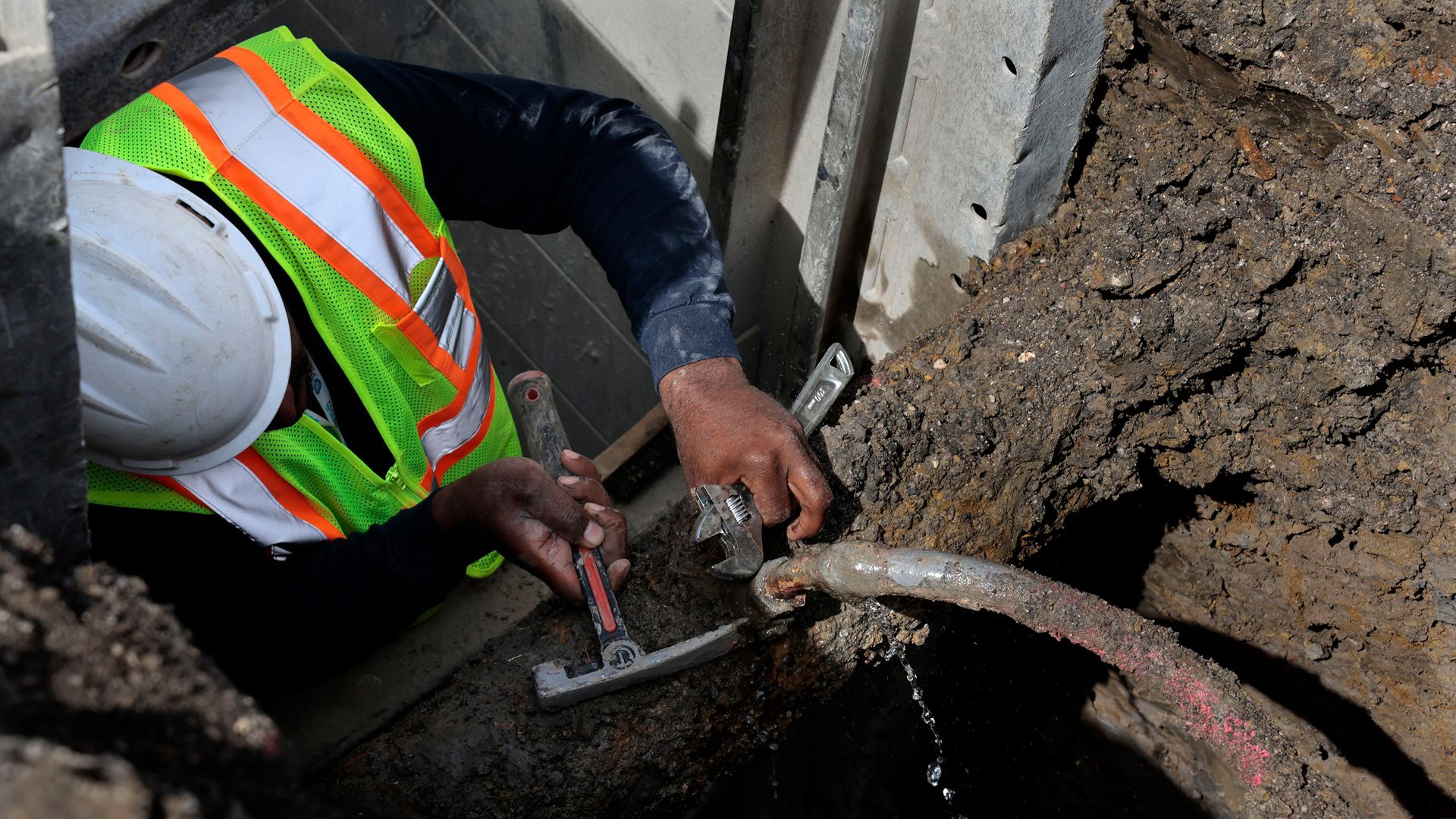Nov 13, 2023 - News
Feds loan Chicago $336 million to remove toxic lead lines
Add Axios as your preferred source to
see more of our stories on Google.

A water contractor fixes a leaking lead service pipe ahead of service line replacement in Chicago. Photo: Antonio Pere/Chicago Tribune/Tribune News Service via Getty Images
